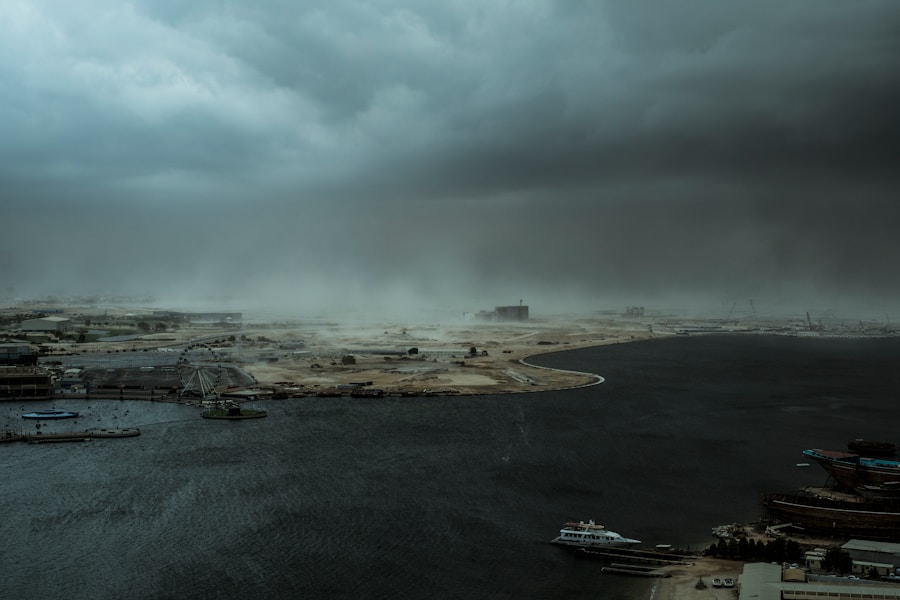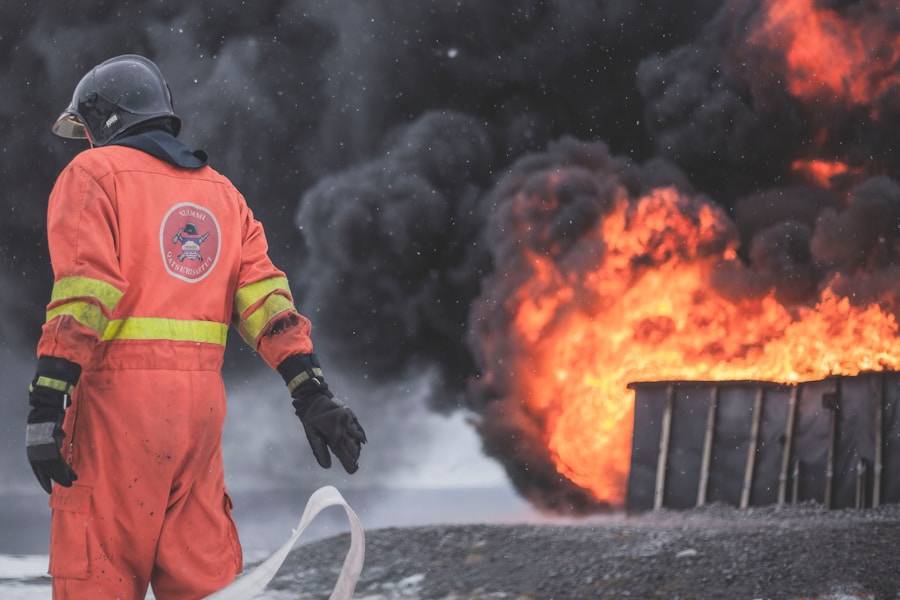When you think of Godzilla, the image of a towering, reptilian creature wreaking havoc on cities likely comes to mind. Since his debut in 1954, Godzilla has become an iconic figure in cinema, representing not just a monster but a complex symbol of humanity’s fears and struggles. His battles, whether against other monsters or human forces, serve as a canvas upon which various themes of conflict, destruction, and resilience are painted.
Each clash is not merely a spectacle of special effects; it is a narrative that resonates with audiences on multiple levels. You may find yourself drawn into the chaos, feeling the weight of the destruction and the underlying messages that these battles convey. As you delve deeper into Godzilla’s world, you realize that his confrontations are more than just entertainment.
They reflect societal anxieties and historical contexts, making them relevant across generations. The sheer scale of his battles invites you to ponder the implications of power, the consequences of human actions, and the fragility of civilization. Godzilla’s story is one of evolution, not just as a character but as a cultural phenomenon that mirrors the complexities of the human experience.
In this exploration, you will uncover how Godzilla’s battles have transcended mere monster movie tropes to become profound commentaries on our world.
Key Takeaways
- Godzilla’s battles have been a central theme in the franchise, showcasing the iconic monster’s destructive power and resilience.
- Godzilla is often seen as a symbol of destruction, representing the fears and anxieties of nuclear warfare and natural disasters.
- Godzilla’s battles are often interpreted as metaphors for real-world conflicts, such as the Cold War and environmental crises.
- World events, such as nuclear testing and the Fukushima disaster, have influenced the storylines of Godzilla movies.
- Godzilla holds a significant place in Japanese history and culture, reflecting the country’s experiences with war and disaster.
Godzilla as a Symbol of Destruction
The Monster as a Reflection of Humanity
He is not just a monster; he is a manifestation of humanity’s own destructive tendencies—our wars, our environmental neglect, and our technological hubris.
A Cautionary Tale
The very act of his rampage serves as a stark reminder of the consequences that arise when nature is pushed to its limits or when mankind’s ambitions spiral out of control. In many ways, Godzilla serves as a cautionary tale. His battles often highlight the fragility of human constructs and the ease with which they can be obliterated.
Confronting Uncomfortable Truths
You may find yourself reflecting on the real-world implications of such destruction—natural disasters, nuclear warfare, and ecological collapse. Godzilla’s presence forces you to confront uncomfortable truths about your own existence and the world around you. As he rises from the depths of the ocean or emerges from the shadows of skyscrapers, he challenges you to consider what it means to coexist with forces far greater than yourself.
Godzilla’s Battles as Metaphors for Real-World Conflicts

As you analyze Godzilla’s battles, it becomes clear that they often serve as metaphors for real-world conflicts. Each encounter with another monster or military force can be seen as a reflection of societal struggles—be it war, colonialism, or environmental degradation. For instance, when Godzilla faces off against other kaiju, it mirrors the geopolitical tensions that arise between nations vying for power and resources.
You might see parallels between these fictional battles and historical events, prompting you to think critically about how conflict shapes our world. Moreover, Godzilla’s confrontations with humanity often symbolize the struggle between nature and technology. In many films, he represents nature’s wrath against human arrogance—an embodiment of the consequences we face when we disregard ecological balance.
As you watch these epic showdowns unfold, you may find yourself questioning your own role in this ongoing battle between progress and preservation. Godzilla’s narrative invites you to reflect on how your actions contribute to larger societal issues and encourages you to consider the impact of your choices on future generations.
The Influence of World Events on Godzilla’s Storylines
| World Event | Godzilla Storyline Influence |
|---|---|
| World War II | Godzilla’s origin as a metaphor for nuclear weapons and the devastation caused by war |
| Cold War | Godzilla films featuring themes of nuclear paranoia and the threat of mutually assured destruction |
| Fukushima Daiichi nuclear disaster | Inspiration for Godzilla’s portrayal as a force of nature and a response to human environmental negligence |
| 9/11 terrorist attacks | Shift in Godzilla’s portrayal from a destructive force to a protector of humanity against other monsters |
| COVID-19 pandemic | Impact on production and release of Godzilla vs. Kong, leading to changes in marketing and distribution strategies |
Godzilla’s storylines have been heavily influenced by world events, particularly those that resonate with themes of destruction and survival. The original film was born out of Japan’s post-World War II anxieties, particularly in relation to nuclear warfare. As you explore the evolution of Godzilla through various decades, you’ll notice how each iteration reflects the zeitgeist of its time.
The monster has transformed from a symbol of nuclear devastation to a representation of environmental concerns and even corporate greed. In the 1980s and 1990s, for example, Godzilla films began to incorporate elements that addressed Japan’s economic boom and subsequent bubble burst. You may find it fascinating how these narratives evolved alongside societal changes, adapting to reflect contemporary fears and aspirations.
As global events continue to shape our realities, Godzilla remains a relevant figure whose battles echo the struggles faced by humanity at large. His ability to adapt to changing times speaks to his enduring legacy as a cultural icon.
Godzilla’s Role in Japanese History and Culture
Godzilla occupies a unique space in Japanese history and culture, serving as both a national symbol and a cultural touchstone. Emerging from the ashes of World War II, he became a representation of Japan’s resilience in the face of adversity. As you explore his origins, you’ll discover how Godzilla reflects Japan’s complex relationship with technology and nature—a duality that has shaped its identity over centuries.
His presence in film and media has allowed for a dialogue about national trauma and recovery. Moreover, Godzilla has transcended borders to become a global phenomenon while still retaining his Japanese roots. You may find it intriguing how he has been embraced by audiences worldwide yet remains deeply embedded in Japanese culture.
His battles resonate with universal themes while also reflecting specific cultural narratives that speak to Japan’s history and values. This duality enriches your understanding of Godzilla not just as a monster but as a symbol of hope, fear, and resilience.
The Impact of Godzilla’s Battles on Pop Culture

Influence on Film and Storytelling
From Hollywood blockbusters to independent films, Godzilla’s influence can be seen in the way monsters are portrayed and how stories about humanity’s struggles are told.
A Cultural Touchstone for Social Commentary
You might also consider how Godzilla has become a cultural touchstone for discussions about environmentalism and social justice. His battles often serve as allegories for larger societal issues, prompting audiences to engage with pressing concerns in their own lives.
More Than Just a Monster
As you witness his impact on pop culture, you’ll recognize that Godzilla is more than just a monster; he is a catalyst for conversation and reflection on what it means to confront our fears and challenges head-on.
Godzilla’s Evolution as a Character in Reflecting Real-World Conflicts
Over the decades, Godzilla has evolved significantly as a character, adapting to reflect real-world conflicts in increasingly nuanced ways. Initially portrayed as an unstoppable force of destruction, he has gradually transformed into a more complex figure—one that embodies both chaos and protection. This evolution allows you to see him not just as an antagonist but also as a guardian against greater threats.
His battles now often involve defending humanity from other monsters or existential dangers rather than simply wreaking havoc. This shift in characterization invites you to explore deeper themes surrounding morality and responsibility. As Godzilla grapples with other kaiju or human adversaries, you may find yourself questioning what it means to be both a destroyer and a protector.
His evolution mirrors society’s growing awareness of the interconnectedness between humanity and nature—a realization that our actions have consequences that extend beyond ourselves. In this way, Godzilla becomes a reflection of your own struggles with identity and purpose in an increasingly complex world.
The Future of Godzilla’s Battles and Their Reflection of Real-World Conflicts
Looking ahead, the future of Godzilla’s battles promises to be as dynamic and thought-provoking as ever. As global challenges continue to evolve—climate change, political unrest, technological advancements—Godzilla will likely adapt once more to reflect these pressing issues. You can anticipate new storylines that delve into contemporary fears while still honoring the character’s rich legacy.
The potential for innovative narratives is vast; each new film or series could serve as a mirror reflecting your own societal concerns. As you consider what lies ahead for this iconic monster, it’s clear that Godzilla will remain relevant as long as humanity grapples with conflict and destruction. His battles will continue to resonate with audiences around the world, inviting you to engage with complex themes that challenge your understanding of power, responsibility, and survival.
In this ongoing saga, Godzilla stands not only as a symbol of destruction but also as an enduring reminder of resilience—the ability to rise from chaos and confront whatever challenges lie ahead.
